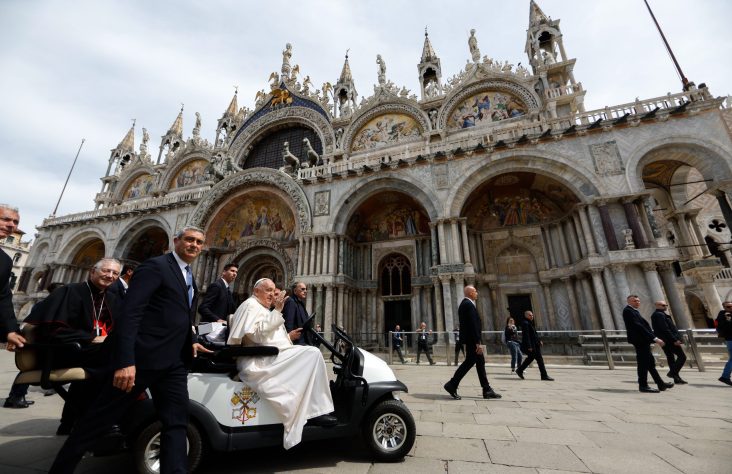April 15, 2013 // Uncategorized
Adult stem cells offer ethical, effective cures, speakers say
By Carol Glatz
VATICAN CITY (CNS) — Finding safe and effective cures to disease and illness does not have to go against moral and ethical principles; that was the message of a three-day conference at the Vatican on adult stem-cell therapies.
“To address global suffering, one does not have to choose between faith and science. … These two ideas fit together symbiotically,” said Dr. Robin Smith, chairman and CEO of the for-profit NeoStem biopharmaceutical company and president of its nonprofit Stem for Life Foundation.
The two groups helped sponsor the April 11-13 conference together with the Pontifical Council for Culture and its foundation — STOQ International, which is an acronym for Science, Theology and the Ontological Quest.
The groups’ second “International Vatican Adult Stem Cell Conference” focused on regenerative medicine and how new discoveries are being made for treatments of multiple sclerosis, cardiovascular disease, cancer, diabetes, and organ and tissue repair.
Smith told journalists before the conference that the main aim was educating the public about the promises offered by adult stem-cell therapies, “which come with no ethical blemishes.”
She said, “the political arguments that erupted over the last 20 years” over embryonic stem-cell science, “have created great confusion” and “ultimately clouded global awareness of the ethical research” found in adult stem cells.
The Catholic Church opposes any research that harms the human embryo. However, the church supports research and therapies utilizing adult stem cells, which can develop into a variety of specialized cells, alleviating degenerative illnesses by repairing damaged tissues.
Msgr. Tomasz Trafny, head of the Pontifical Council for Culture’s science and faith department, said the conference aimed to help inform the general public about the new therapies since “modern science increasingly appears inscrutable and impenetrable to non-experts.”
Among the dozens of speakers invited to help translate the new developments into layman’s terms were Nobel Prize winner John B. Gurdon — a pioneer of adult stem-cell research — and Tommy G. Thompson — former U.S. secretary of Health and Human Services and former governor of Wisconsin.
In his speech, Thompson admitted he had been a proponent of “limited” embryonic stem-cell research during his tenures at both the federal and state levels.
“Embryonic stem-cell research was born in the state of Wisconsin,” at the state university in the 1990s while he was governor, he said.
At the time, he said, only embryonic stem cells were talked about and they were supposed to be “the next big thing,” that is, “super cells” meant to save the lives of countless people.
“When you’ve got their lives to think about, you’ve got to make a call,” he said, “so I made the call that I did” to support such research even though he was Catholic.
But he said, “I wouldn’t have made that call had I known what I learned” about adult stem-cell science. Now that that science is better known, he urged other leaders to “follow my lead” and embrace adult stem-cell research not only because it is more effective, but it’s also “ethically safe,” he said.
The best news. Delivered to your inbox.
Subscribe to our mailing list today.





